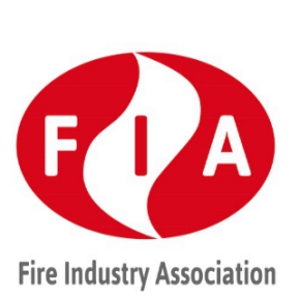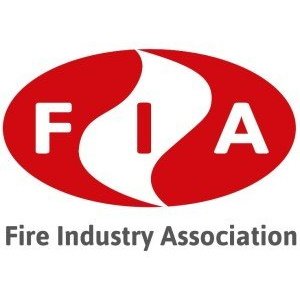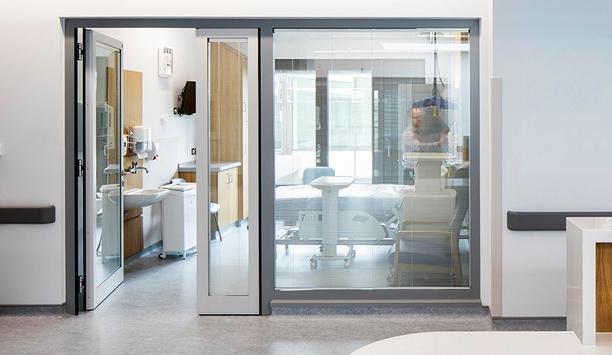Fire Industry Association (FIA) - Experts & Thought Leaders
Latest Fire Industry Association (FIA) news & announcements
The largest UK fire and rescue service convoy is set to deliver more than 15,000 pieces of life-saving firefighting equipment to Ukrainian firefighters. Donated by UK fire and rescue services, working with FIRE AID, the eighth convoy - including 26 donated fire engines - will make its way across Europe next month (April). This eighth convoy adds to the 119 vehicles that have been donated, alongside 200,000 pieces of equipment since the invasion began. Full-scale invasion in 2022 The war in Ukraine has had a devastating impact on Ukrainian firefighters The war in Ukraine has had a devastating impact on Ukrainian firefighters. Latest figures from the State Emergency Services of Ukraine show that since the start of the full-scale invasion in 2022, 100 firefighters have been killed and a further 431 injured, whilst four are currently in captivity and one is missing. Meanwhile, 411 firehouses and 1,700 fire vehicles have been destroyed, and 95 firehouses are now in occupied territories. Despite these challenges, Ukrainian firefighters continue to operate in the war zone - not to engage in combat, but to save lives and protect property, often at great personal risk. Basic firefighting equipment In response, UK fire and rescue services (FRSs), in partnership with the UK Government, National Resilience, UK International Search and Rescue, FIRE AID, National Fire Chiefs Council (NFCC), and the Fire Industry Association (FIA), have come together to support their Ukrainian counterparts. English and Welsh FRSs have donated all the appliances and kit for the eighth convoy, which ranges from basic firefighting equipment such as hoses, PPE and road traffic collision equipment. Among the 30 vehicles being donated are 26 fire engines. Around 100 volunteers, drawn from FRSs and FIRE AID, will participate in the convoy. Latest donation of fire engines and equipment English and Welsh FRSs have donated all the appliances and kit for the eighth convoy National Fire Chiefs Council (NFCC) Vice-Chair and Chair-Elect, Phil Garrigan, said: “The entire UK fire and rescue community stands with our colleagues in Ukraine, as they continue to put their lives on the line in the most challenging and dangerous conditions." “This latest donation of fire engines and equipment will go some way to replace that lost to the full-scale war, providing critical support to firefighters who are working tirelessly to save lives and protect communities despite immense adversity. We are incredibly proud to play a small but crucial role in ensuring that our colleagues have the resources they need to continue their vital work." Life-saving missions First Deputy Head of the State Emergency Service of Ukraine, Vitalii Myroniuk, said: “The people and Government of the United Kingdom were among the first to stand shoulder to shoulder with Ukraine at a time when the whole world was uncertain whether we would endure the onslaught." "Your support in the critical early days of Russia's invasion allowed us to replace outdated equipment with modern British technology, enabling us to carry out our life-saving missions more quickly and effectively in wartime conditions. We are immensely grateful for your solidarity and for understanding the challenges we face and the conditions in which we operate." Unimaginable challenges Myroniuk added: “Every Ukrainian rescuer works tirelessly to safeguard our statehood and our nation. And we are able to endure thanks to our British friends, who share our common values of freedom and the rule of law.” FIRE AID Chair, David O’Neill MBE, said: "We continue to stand shoulder to shoulder with Ukraine; our fire family is committed to giving ongoing support and a lifeline in their time of need. This eighth convoy - the largest yet - is absolutely vital as the news about the conflict unfolds and changes daily. Recently we welcomed our frontline and political colleagues from Ukraine to the United Kingdom, the unimaginable challenges they face daily is devastating." Unwavering support and assistance to firefighters O’Neill added: "FIRE AID and partners continue to work tirelessly to support Ukrainian firefighters. The statistics are staggering; more than 100 firefighters have lost their lives, with hundreds injured. Our work is far from done. We remain committed to Ukraine and will continue to offer our unwavering support and assistance to their firefighters risking their lives daily." Fire Industry Association (FIA) Chief Executive Officer, Ian Moore OBE JP, said: "Firefighters in Ukraine continue to demonstrate extraordinary courage under the most challenging circumstances. Every day, they put their lives on the line to protect their communities, often with limited resources and in the face of immense danger." Life-saving equipment Moore added: “The FIA is honored to support this vital initiative, ensuring that life-saving equipment reaches those who need it most." "By working alongside our partners in the UK fire sector, we are not only providing essential tools but also reinforcing a message of solidarity. Our commitment to supporting our firefighting colleagues in Ukraine remains steadfast."
The FIA CEO has responded to Prime Minister Sir Keir Starmer’s announcement that responsibility for fire safety will move from the Home Office to the Ministry of Housing, Communities and Local Government. Ian Moore (CEO of the FIA) said that this decision (that many of us have known was coming for some time) is common sense and he is glad to see that the Government is finally listening (after many years) to feedback from the fire industry. WMS 8-Machinery of Government Organization: Prime Minister's Office Type: Written Ministerial Statement Date: 13 February 2025 Grenfell Phase 2 Inquiry report Statement made by Sir Keir Starmer, Prime Minister: "I am making this statement to bring to the House's attention the following Machinery of Government change." "On 4 September 2024 I announced that the Government would respond in full to the Grenfell Phase 2 Inquiry report within six months. In response to one of the recommendations from the report, I am confirming today that responsibility for fire will move from the Home Office to the Ministry of Housing, Communities and Local Government." Management of the Airwave Service Contract "This change will bring responsibility for building safety and fire under a single Secretary of State, providing for a more coherent approach to keeping people safe from fire in their homes." "The Home Office will retain management of the Airwave Service Contract on behalf of the Ministry of Housing, Communities and Local Government and will remain responsible for the Emergency Services Mobile Communications Programme and His Majesty's Inspectorate of Constabulary and Fire & Rescue Services (HMICFRS)." This change will be effective from 1 April 2025. The Government will respond to the full report in due course.
Lithium-ion batteries are at the heart of modern technology, powering everything from mobile devices to electric vehicles. However, they come with a significant fire risk. The newly released Collaborative Reporting for Safer Structures (CROSS) paper delves into the fire safety concerns associated with these batteries, shedding light on the phenomenon known as thermal runaway. This self-sustaining reaction can trigger large-scale fires or even explosions, often set off by overcharging, short circuiting, or overheating. Challenges with lithium-ion battery fires These batteries are not only difficult to access with traditional fire suppressants One of the main challenges with lithium-ion battery fires is their stubborn nature. These batteries are not only difficult to access with traditional fire suppressants, but they also emit flammable and toxic vapors. Moreover, residual heat can lead to reignition, and common extinguishing agents may provoke violent reactions. The paper outlines essential mitigation measures – including the installation of battery management systems (BMS), gas and fire detection, proper ventilation, and regular maintenance – that can significantly reduce these risks and enhance safety for both people and the environment. Overview of the fire and explosion dangers Drawing on a blend of publicly available guidance, cutting-edge research, and confidential UK reporting experience, the paper examines hazards linked to both battery-powered devices and Battery Energy Storage Systems (BESS). It provides a comprehensive overview of the fire and explosion dangers within the built environment, offering practical advice for mitigating potential disasters. This publication is a must-read for: Owners and occupiers of facilities using or planning to use lithium-ion technology Fire and structural engineers Local authorities and building control bodies Developers, surveyors, and architects Facilities managers and maintenance organizations First responders, including fire and rescue services, police, and ambulance teams For anyone involved in the planning, installation, or management of lithium-ion battery systems, this CROSS paper offers valuable insights into improving fire safety.
Insights & Opinions from thought leaders at Fire Industry Association (FIA)
COVID-19 dominated the headlines in 2020, and it had a profound impact on the fire industry. TheBigRedGuide.com published many articles about the pandemic and its impact, some of which were among the most-read articles of the year. This retrospective will highlight some of those pandemic-related articles, including links to the original content. The Fire Industry Association (FIA) in the United Kingdom published a survey report on the impact of the coronavirus pandemic. The survey, conducted by FIA, sought to gain a greater understanding of how organizations have been impacted by COVID-19 and of the impact on the wider fire industry now and in the future. Resilience is a recurring theme in the FIA report. At the time of the survey (when the United Kingdom was just past the coronavirus peak), a total of 81% of respondents expected they could continue operating under current circumstances for three months or more. rapidly-spreading virus Roughly a fourth expected their business could continue for six months (23.4%), and another quarter of respondents expected they could last a year (23.4%). First responders were on the front lines of the latest COVID-19 health crisis. Around the United States - and around the world - EMS departments faced the uncertainties of a rapidly-spreading virus. One early problem was a shortage of face masks. As cases surged, it was also harder for ambulance companies to get other needed supplies. Around the United States - and around the world - EMS departments faced the uncertainties of a rapidly-spreading virus In King County, Wash., an early epicenter of COVID-19 cases in the United States, Kirkland, Wash., firefighters and Kirkland police officers were placed under quarantine after an outbreak at a senior care facility. Firefighters were either quarantined at home or at a local fire station. Fire stations are unique environments with conditions that could be conducive to the spread of the novel coronavirus/COVID-19. municipal fire departments Firefighters live in close quarters for 24-hour shifts, and then return home to their families. Reports about “hot” firehouses have helped to emphasize the need to follow best practices to avoid the spread of the disease. The Fire Department Safety Officers Association (FDSOA) compiled a list of guidelines that departments can put into practice to reduce and/or avoid cross-contamination of on-duty staff. Among other impacts on the fire industry, the COVID-19 global pandemic played havoc with the industry’s trade show schedule, with major events canceled or delayed. County and municipal fire departments were impacted as local governments respond to the COVID-19-induced economic downturn with spending freezes, hiring freezes and spending cuts. Some local governments are hoping for help from the state and/or federal level. address economic downturns Although some governments have “rainy day funds” to address economic downturns, not all of them do. Furthermore, the extent of the current economic crisis may exceed our worst fears. Proposed budget cuts for some fire and EMS departments are in the 10% to 25% range. A consequence of the coronavirus shutdown was cancellation of hundreds of volunteer fire department fundraisers across the United States - from fish fries to bingo to hog roasts to chicken barbecues. During the COVID-19 pandemic, the trend toward working from home accelerated No more carnivals or spaghetti suppers or gun raffles. And departments lost thousands of dollars. Firefighters are used to wearing protective gear, but one U.S. locale exempted first responders from adhering to a mask mandate to address coronavirus risks. The City Council of Portsmouth, New Hampshire, proposed an amendment to exempt first responders from complying with the city’s face mask ordinance. ensure social distancing Specifically, the proposed amendment states, “Exempted from the requirements of the ordinance requiring wearing of face coverings include law enforcement personnel, first responders or other workers, who are actively engaged in their tasks, if wearing a face covering may hinder their performance.” During the COVID-19 pandemic, the trend toward working from home accelerated. New technologies made it possible for 911 dispatchers to work from home, whether to ensure social distancing or to supplement operations during evolving emergencies. The computer-aided dispatch (CAD) systems offer web-based interfaces and mobile capabilities that enable public-safety answering point (PSAP) operators to work from anywhere. Other technologies that are paving the way for dispatchers to work from home include the cloud, virtual private networks (VPNs), and faster data speeds. blocking firefighter access Adapting workspaces to operate safely during a pandemic presents complications, not least of which is making sure that the measures taken to protect employees from infection do not undermine fire safety. In the course of altering a building to prevent infection spread, there are risks of introducing new life safety hazards and compromising emergency preparedness. It is also important to avoid blocking firefighter access and facilities As buildings adapt to new occupancy standards and requirements, it is critical that any protective measures do not interfere with operation of life safety systems. Might temporary partitions or barriers block escape routes during a fire emergency? Social distancing measures might entail blocking emergency exists and disrupting the flow of occupants looking to vacate a building. It is also important to avoid blocking firefighter access and facilities. career options The COVID-19 pandemic is disrupting every aspect of our business lives. But buried among the disruption was an opportunity. Newly idled workers could see this as an opportune time for training to expand their career options. Meanwhile, employees still on the job may find that a cancelled or postponed project means they have time on their hands. Training can enable them to make the most of that time. In-person training has come to a halt, of course, because of social distancing requirements. Filling the gap are new online learning opportunities.
COVID-19 has shaped and altered the fire protection industry in recent months, and the Fire Industry Association (FIA) in the United Kingdom has published a survey report on the impact of the coronavirus pandemic. The survey, conducted by FIA, sought to gain a greater understanding of how organizations have been impacted by COVID-19 and of the impact on the wider fire industry now and in the future. Resilience is a recurring theme in the FIA report. At the time of the survey (when the United Kingdom was just past the coronavirus peak), a total of 81% of respondents expected they could continue operating under current circumstances for three months or more. Roughly a fourth expected their business could continue for six months (23.4%), and another quarter of respondents expected they could last a year (23.4%). alternative learning models Although not offered as an option in the survey, some respondents commented that they could last longer than a year. It is unclear whether answers were provided before or after respondents had made organizational changes to adapt to COVID-19. The companies surveyed by FIA appeared to be adaptable as well as resilient. In short, COVID-19 has changed how organizations work. More than 50% planned flexible working (55.9%) and/or remote working (50%) initiatives More than 50% planned flexible working (55.9%) and/or remote working (50%) initiatives. Other adaptation approaches include restructuring (45.4%), alternative learning models (36.9%), cross-training and knowledge transfer (33.3%), and reskilling or upskilling employees on new ways of working (32.1%). continuous professional development The United Kingdom’s Coronavirus Job Retention Scheme has allowed companies to keep their staff whilst they assess the impact of COVID-19 and not be forced into premature decisions on redundancies. Outside the survey, the FIA reports seeing many companies within the fire industry demonstrate their flexibility by engaging with the association’s new online training and exams. More than 450 fire professionals have been trained online since April 1, and over 100 online exams were completed since June 1. Over 2,000 fire safety professionals have embraced online continuous professional development (CPD) sessions from FIA as a way to invest time when not on the road or visiting customers. high financial impact The largest group of FIA survey respondents (47.6%) observed that COVID-19 had a high financial impact on their business, and another 39.3% noted a moderate impact. Only 10.7% saw a low financial impact on their business. COVID-19 has also had an impact on the management, retention and hiring of staff. Some 40% of survey respondents said they had placed 25% or less of their staff on furlough. Required access of fire professionals to customer premises was an issue during lockdown, and in the FIA survey However, at the other extreme, 27.7% reported they had placed 75-100% of staff on furlough. In the middle, 13.8% reported they had placed 25-50% on furlough, and 18.5% reported the number at 50-75%. On the optimistic side, 57.6% of respondents expect 75-100% of workers to return from furlough. Another 28.8% expect only 0-25% of employees to return from furlough. Required access of fire professionals to customer premises was an issue during lockdown, and in the FIA survey. fire safety professionals Some 72.5% of respondents reported they require access to customer premises. As the lockdown progressed, 75% saw improvement in access to customer premises. About 46.4% of respondents reported that 50% or more of site visits have been postponed or cancelled due to COVID-19. Arguably, even more site visits would have been cancelled or postponed if fire safety professionals had not been classified as key workers. The survey included respondents from the Fire Detection and Alarm (FD&A) sector (41%), as well as Fire Risk Assessors (26%) and the Extinguishing sector (13%). An “other” category (20% of respondents) included Housing Associations, Local Government, Insurers, and Quality and Competency Approval Bodies. There were 84 respondents.
With many businesses and facilities re-opening sites following the Coronavirus lockdown, fire safety may not seem high on the list to other worries and responsibilities. But here, Mandy Bowden, Fire Business Development Manager at Comelit Group UK, led by fire industry bodies, demonstrates why it must be a priority, ensuring installation of systems is guided by best practice in accordance with the development, and fire safety measures are maintained and regularly tested to ensure compliance. Fire safety is too often neglected. And in the midst of returning to work and implementing necessary fever screening solutions and social distancing policies, it may even fall further down the necessary requirements, for businesses who are naturally eager to open and ‘get going.’ Providing Fire Safety But the Government and leading authoritative fire industry bodies have made it absolutely clear that, “Coronavirus is not an excuse for disregarding your responsibilities and businesses must ensure that they have an adequate amount of competent people to help in the implementation of both preventative and protective fire safety measures.” Above all else, fire detection is there to save lives; but the way in which systems are presented, will depend on their surroundings. For many facilities it involves more than the best choice of products and services. It also requires compliance to standards, currently changing in light of the Grenfell Tower Inquiry, and a need to consider the environment that it serves to keep safe. fire detection technology It is crucial that buildings are fitted with the highest quality life safety systems to ensure ultra-reliable protection Style of a fire detection system would be considered a priority for a hospitality environment, including hotel and restaurant facilities, to blend with the aesthetics and not impact on the ambience created. In any leisure facilities such as a Gym, it is essential fire detection measures and systems are in place that will provide customers, employees and the premises itself, with sufficient prevention against fire at all times. To keep up with demand, a system needs to be simple to install and operational as quickly as possible for the benefit of members and staff. However, a manufacturing vicinity will require latest fire detection technology to ensure the safety of its building, its specialist products and all personnel who operate on site. Similarly, an art studio is a specialist consideration when it comes to fire safety, especially with the use of different materials and substances in every day works by the artists on site. ensure ultra-Reliable protection Both temporary and permanent healthcare facilities in this period have undoubtedly been key to fighting the Coronavirus pandemic, and experienced an expediential increased demand for patient care. With more people to treat and protect, those working or residing within these spaces have to be considered at greater risk in the event of a fire emergency. It is crucial that these buildings have been and continue to be fitted with the highest quality life safety systems to ensure ultra-reliable protection. And the same is true for care homes, a vulnerable group in the fight against coronavirus. They require critical and reliable, functioning fire detection equipment that presents high performance protection, avoiding false alarms to prevent moving elderly residents unnecessarily. In each of these scenarios, the need to act quickly is paramount. Fire Detection Operations Fire safety must be kept a priority to ensure a return to work can occur seamlessly and successfully In healthcare, immediacy is a common theme through the industry, be it providing treatment or responding to a patient’s symptoms. This is no different in fire safety, with detection systems requiring an ease of use, by anyone operating on site. In businesses returning to work ‘post-lockdown’ the appointed Fire Marshalls and responsible persons may not be the ones returning to office locations, so others need to be trained with simple to operate solutions. In summary, fire safety must be kept a priority, arguably now more than ever to ensure a return to work can occur seamlessly and successfully, and with an obligation of care to workers coming back to operating establishments. By understanding these environments and choosing systems accordingly, duty holders can ensure they reduce risks across their premises and maintain a safe ‘new normal’. multi-Sensor detectors Comelit presents its third-party accredited family of ATENA and ERACLE fire detection and fire alarm systems, which offers a diverse portfolio of intelligent, addressable products that are feature-rich, easy to install, simple to operate and offer incomparable reliability. Tested to rigorous standards, the range encompasses smoke, heat and multi-sensor detectors as well as IP rated devices including sounders and callpoints, alongside accessories to complete installations. To support the installer, we have product specific basic and advanced commissioning training courses, together with a full suite of calculation tools for our ATENA addressable systems for both loop loading and battery standby calculations, helping to identify possible issues prior to installation. Comelit is a proud member of the Fire Industry Association (FIA) that insists on third-party certification; as a clear sign of a company’s quality. All demonstrating that we want to work in partnership with our customers to ensure manufacture, design and install of stylish (often bespoke) fire detection systems are a smooth operation for the benefit and peace of mind of businesses and facilities across the UK. All signs that we want to work in partnership with our customers to ensure manufacture, design and install of stylish (often bespoke) fire detection systems are a smooth operation for the benefit and peace of mind of businesses and facilities across the UK.
The New Future For Fire Agencies
DownloadThe Eight Key Trends in Fire Detection in 2023
DownloadA Digital Platform to Improve Fire Safety Compliance and Inspections
DownloadOvercoming the Challenges of Fire Safety in the Paper Industry
DownloadCarbon Monoxide: Creeping Killer Caught In The Act
Download





















